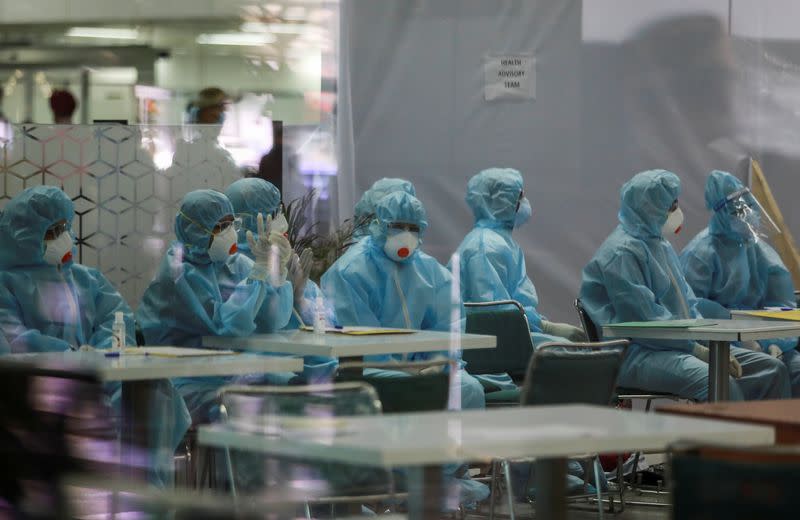What you need to know about the coronavirus right now

(Reuters) - Here's what you need to know about the coronavirus right now:
Germans expect to spend less
One third of Germans expect to splash less cash on durable goods in future and the same proportion sees their financial situation worsening over the next 12 months as the coronavirus crisis bites, a poll showed.
That is having an impact on consumption, with one quarter cancelling vacations and 7% planning to postpone purchases of products like clothing, cars or luxury goods, the Nuremberg-based GfK market research group said.
Getting out from under the doona
Australia laid out a three-step road map to ease social distancing restrictions on Friday, aiming to remove all curbs by July and get nearly one million people back to work.
Prime Minister Scott Morrison said it will be up to Australia's various states and territories to decide when to begin implementing each stage. Each step will likely be separated by a four-week transition.
"You can stay under the doona forever. You'll never face any danger," Morrison told reporters, using an Australian word for quilt. "But we've got to get out from under the doona at some time."
Plague, weather, war and the UK economy
For anyone pondering how the coronavirus is about to deliver the British economy's worst year in modern history, only a handful of things have wrought such severe and sudden damage in the past: weather, war and pestilence.
The Bank of England on Thursday put forward an "illustrative scenario" that saw a plunge in output of 14% in 2020 - albeit followed by a 15% bounce-back in 2021 - the worst hit to the economy in more than 300 years.
Two very bad years stand out in Britain: 1706, a year of weak harvests and weak trade, when the economy contracted by around 15%, and 1709, the year of the "Great Frost", when the economy shrank by 13%.
Lessons unlearned
As the coronavirus spread through the Diamond Princess cruise ship with passengers dying in what became one of the first hot spots outside China, Japanese authorities issued no warnings to the Costa Atlantica cruise ship docked at another Japanese port.
The Costa Atlantica now hosts one of Japan's biggest clusters of the coronavirus, with a quarter of the more than 600 people then onboard infected.
Public health experts say a lack of additional measures on cruise ships after the Diamond Princess outbreak, toothless coronavirus legislation and a nationwide paucity of virus testing combined to allow the outbreak on the ship to blossom.
Suntanning with plexiglass screens
Santorini beach bar owner Charlie Chahine is not a fan of the plexiglass screens that have been added around the lounge chairs at his establishment, but if that is the way it has to be for tourists to return, then that is what he is doing.
Businesses on Greece's most popular holiday island are adopting all kinds of hygiene measures, anxious for the season to start.
"We don't want this, but if this is necessary, and if this is what people's safety depends on, such a construction or any such construction - we want to work, we want to get going," said Chahine.
Bookings in June last year were at 70%, while now they hover at 30% at most, vice president of the Santorini Hotel Association Andreas Patiniotis said.
(Compiled by Karishma Singh and Nick Tattersall; Editing by Andrew Cawthorne)


